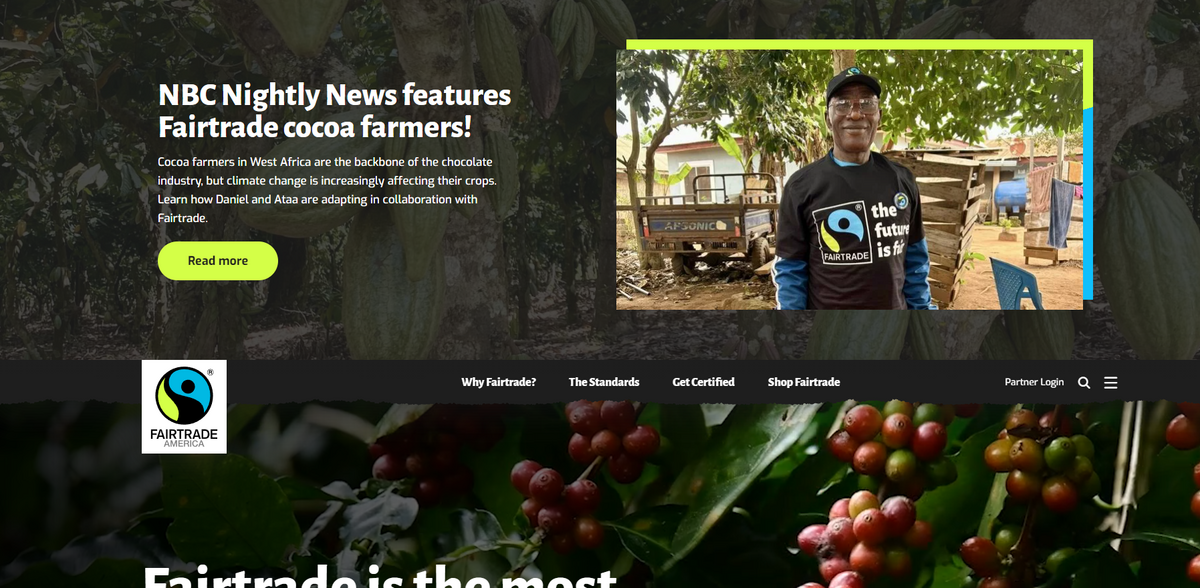What is the Fairtrade Project?
Fairtrade works towards fairer terms of trade for farmers and workers, safe working conditions, environmental protection, and quality. This approach prioritizes the lives of farmers and workers in supply chains and partners with them as active participants in the decision-making process… Think of it as a movement that brings together 1,930 producer organizations in 70 countries, +37,000 products sold with the Fairtrade Mark in more than 140 countries, and over 2M farmers and workers involved worldwide. The project has been built on a simple idea: to secure fairness and quality while spotlighting the achievements and potential of those who produce the goods we love.
Main Benefits of Fairtrade
The benefits of Fairtrade shine through in many ways. Consider these key figures and facts:
- 1,930 producer organizations in 70 countries
- +37,000 products sold with the Fairtrade Mark in more than 140 countries
- 2M+ farmers and workers involved in Fairtrade worldwide
- $2B+ Fairtrade premium earned in the past decade
- 56 externally funded projects active in 2023
How Fairtrade Works
Fairtrade isn’t just about labels or certification—it’s about a system that ensures integrity in checking compliance, offers Fairtrade products and ingredients, and maintains high Fairtrade standards. The label works as a guarantee that products are produced according to specific criteria, and the process of Fairtrade certification reinforces fair practices. From how Fairtrade certification works to implementing traceability in supply chains, the methods are as dynamic as they are transparent… It’s a process that connects the dots between producers, partners, and consumers in a very practical way.
Why Fairtrade Matters
The ethos behind Fairtrade can’t be separated from its broader vision. Areas of focus highlight that sustainable consumption and production have become the expectation rather than the exception. Fairtrade offers solutions for companies and producers to put fairness at the heart of their operations. It creates an environment where human rights merge with environmental rights, child protection aligns with living incomes, and gender equity goes hand in hand with workers’ rights. The ambition is clear: a world where everyone benefits from quality products and enjoys a superior quality of life. This isn’t done in isolation—it’s about building a global community that cares and takes the necessary actions.
The Fairtrade Difference
Fairtrade products range widely—from bananas, cocoa, chocolate, and coffee to cotton, herbs and spices, nuts and oils, sugar, wine, fruits and juices, and even honey. The difference lies in how Fairtrade certification supports not only the purchase of goods but also the growth of secure livelihoods. Initiatives to check compliance, demonstrate integrity, and showcase the projects and programs have paved the way for a seamless transition to more equitable trade practices. It’s about ensuring that every purchase has a story; a story where fairness transforms communities.
Project Impact on SDGs
- Child Protection
- Climate and the Environment
- Decent Livelihoods
- Deforestation
- Gender Equality
- Workers Rights
- Fairtrade and the Sustainable Development Goals
Stories and Social Impact
Impact isn’t just measured in numbers and bullet points—it’s also told through human stories. For instance, “FAIRTRADE HAS CHANGED MY LIFE. INDEED, IN A CRISIS SITUATION, I HAVE AN INFLOW OF MONEY FOR MY NEEDS INSTEAD OF GOING INTO DEBT. AND FAIRTRADE HAS MADE ME A WOMAN LEADER.” Affoué Angèle Kouassi has farmed cocoa on her own land for 14 years, and her journey took a remarkable turn when she participated in Fairtrade’s Women’s School of Leadership in 2021. The initiatives under the Fairtrade umbrella continue to create significant societal and economic changes while sparsely addressing deep-rooted issues in local communities. This blend of statistical impact with tangible personal transformation makes the project not just an abstract concept but a living, breathing movement that uplifts lives every day… It all comes together to ensure that fairness isn’t a fleeting idea—it’s a permanent shift in how trade and cooperation are envisioned globally.


















